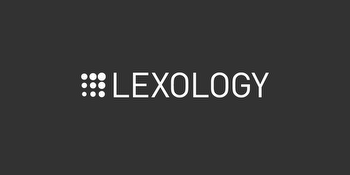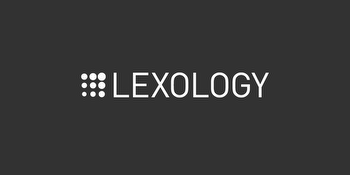France’s gambling regulations should be updated for the 21st century

The increasing prevalence of gambling and betting in the daily lives of French citizens has presented French legislators with an opportunity to revise the regulatory framework.
According to a comprehensive report (115 pages / 2.75MB PDF) published by the Cour des Comptes, the French gambling sector continues to grow. Today, almost half of French adults participate in lotteries, while a quarter of them take part in gambling.
Since 2010, when new laws opened up the gambling sector to competition, annual online bets have risen by 42%, reaching €43.2 billion euros in 2021. That same year, online gambling accounted for €2.2bn of revenues for gambling companies. Between 2015 and 2022, the number of active online player accounts has quadrupled in France – from 1.2 to 5.2 million – and average bets rose by 32% for online sports betting.
The figures speak for themselves, and according to the forecasts made by the Business Research Company, France’s gambling and betting frenzy is not going to fade away any time soon. In Europe, the gambling, gaming and betting market is expected to rise by a nearly a third (28.7%) between 2020 and 2025.
The Cour des Comptes’ report also provides an assessment of the reforms carried out in France and examines the limits of the current regulatory framework.
The French online gaming regulatory framework
In France, the competitions and types of results on which online bets can be offered are controlled by the French regulator (ANJ). While other countries draw up blacklists of prohibited competitions, France only authorises bets on competitions and results listed, which means that all others are prohibited by default. To this end, the ANJ maintains a list of authorised sports betting media and types of results known as the ‘sports list’.
France introduced a regulatory maximum return rate to players, known as the ‘TRJ’, which is the ratio between the sums paid to players by the operator and the stakes placed. By limiting players’ winnings, this maximum redistribution is intended to help curb their appetite for playing. It also has the effect of limiting aggressive behaviour by operators aimed at winning new market shares. In practice, the implementation and monitoring of this rule by operators is rather technical and complex. In 2022, seven online operators who had exceeded the 85% maximum TRJ were subject to a decision by the sanction committee of the ANJ. In its decisions, the sanction committee of the ANJ first found that the overruns constituted a breach by the operator of its obligations and then issued seven warnings and one administrative fine.
In its report, the Cour des Comptes recommended the ANJ strengthen the controls on operators of compliance with the TRJ, and monitor this compliance.
Due to the breaches observed by the ANJ, the report said the regulator should provide further guidance on the practical methods to calculate the TRJ and may consider increasing its monitoring activities.
Furthermore, the French gaming market is characterised by heavy social and tax contributions. The important social and tax contributions are criticised by operators, who argue that these contributions make it hard for them to propose competitive offers to players.
Online gambling is generally subject to higher rates of levy than brick-and-mortar gambling, and all operators except the Française des Jeux have campaigned for an alignment of online gambling levy rates with brick-and-mortar gambling levy rates. A 2019 reform harmonised and simplified the applicable social and tax contributions to gaming. But the Cour des Comptes report recommends carrying out a comprehensive study of the impact of gambling and games of chance taxation both on the balance and viability of the legal gaming and gambling offer, as well as on player behaviour.
The Cour des Comptes already recommended this in its 2016 report but the study still has not taken place. According to the Cour des Comptes, such a study would prove particularly useful to assess whether taxation and social contributions have a neutral impact on the development of the various forms of gambling.
Web 3.0 and NFT opportunities
Some digital activities today are at the edge of the online gambling regulation and illustrate the sector's dynamism and creativity in terms of digital offerings. For instance, the Française des Jeux operator (FDJ) announced in its 2020-25 strategic plan the diversification of its activities and plans to invest in innovative game media including non-fungible tokens (NFTs), within future metaverse and player communities.
In a May 2023 report, the French General Inspectorate of Finance pointed out the dynamic ‘web 3.0’ gaming sector in France, which is being driven by world-class players such as Sorare in the world of 'Play To Earn' sports. Yet web 3.0 games most often fall within the scope of the prohibition of gambling and games of chance under Article L. 320-1 of the French Homeland Security Code and cannot benefit of any of the exceptions as provided for in article L. 320-6. The French government therefore considered that the development of web 3.0 games required the creation of a dedicated regulatory framework to allow growth and innovation in the sector.
On 5 July a draft law was adopted by the French Senate to specifically authorise games based on monetisable digital objects or tokens, notably offering NFT-based games for a three-year experimental period. Some amendments were made by the National Assembly to this draft law. On 17 October, the National Assembly adopted at first reading this draft law to secure and regulate the digital space.
As of 17 October, article 15 of the draft law authorises: "games offered via an online public communication service that enable players who have made a financial sacrifice to obtain monetizable digital objects, based on a mechanism that relies on chance, to the exclusion of any gain in a tradable currency, provided that these objects cannot be transferred whether directly or indirectly through the intermediary of any natural or legal person for financial reward either to the gaming company that issued them, or to a natural or legal person acting in concert with it".
One of the major derogations potentially created by this draft regulation, compared to the existing online gambling regulatory framework, is that operators will not need to obtain a license or an agreement prior to launching their activities. They will only need to notify the competent authority of their existence and the launch of their activities. In addition, the government plans to allow a broader range of games than those allowed to online gambling operators.
The draft law grants the ANJ additional powers to ensure compliance with the new framework and includes reporting and sanctioning mechanisms. Notably, operators must prevent the participation of minors to these games for financial reward. Debates at the parliament will continue. A joint committee should further the discussions, probably in December 2023, and the draft law could thus still evolve.
Once finally adopted by the French Assembly, the regulatory framework of the web 3.0 gaming sector will still need to be supplemented, which will take some time. Governmental decrees should be enacted in particular to:
- specify the information that games with monetisable digital objects operators must notify to the authorities prior to launch;
- specify the list of authorised game categories;
- specify the characteristics of the rewards that can be awarded including potential rewards cap;
- specify the procedures for opening, managing and closing player accounts by the gaming company, notably to warrant that minors cannot access the games;
- specify the list of data used to search for and identify any act committed by a player likely to constitute fraud, money laundering or terrorist financing, as well as the procedures for checks carried out by the ANJ; and
- frame the prevention of excessive or pathological gambling behaviour, in particular through the introduction of self-exclusion mechanisms and self-limitation mechanisms for spending and playing time.
Paving the way for new liberalisation of the online gambling market?
This draft law, once entered into force, will be the first real broadening of regulation of French online gaming since 2010. However, there is a strong appetite for further liberalisation.
In its report, the Cour des Comptes raises the question of authorising betting on video game or e-sport competitions. As video game competitions do not qualify as sport, betting on these competitions is currently illegal and cannot be included on the list of authorised sports bets. One cannot deny the growing attraction and popularity for video game competitions, such as battle royale games and soccer matches which are among the most closely followed video games competitions in France.
On the one hand, the authorisation of betting on e-sport competitions would make it possible to channel the illegal practice of betting and the practice of unauthorised video game competitions on which the ANJ has no visibility. On the other, the Cour des Comptes stressed that the two major obstacles to overcome are the age of the public and of the competitors – most of whom are minors – and the difficulty of controlling the risk of competition manipulation.
Furthermore, the general prohibition of online casinos in France will likely be discussed again. A Bill to regulate online casinos was deposited before the French National Assembly on 23 May without follow-up. During the Senate debate on the draft law to secure and regulate the digital space, several amendments which aimed at extending the current online gambling regulation to include online casinos were rejected by the French Senate without further discussion.
In its 2016 report, the Cour des Comptes already mentioned the delicate subject of online casinos in France. It is interesting to note that the Cour des Comptes has now gone a step further by reflecting on the various possible options that exist in the EU and clearly opening the debate. With around a couple of million online casino players in France, the illegal activity of online casinos in France can no longer be overlooked.
According to the Cour des Comptes’ report, 81% of French people and 76% of online casino players are unaware of this illegality, and almost a third of players who are aware of it say they use a VPN to get around the administrative block.
The consequences of the explosion of online casinos are serious and create a lawless zone. The protective measures for players designed by French regulations – related notably to the fight against fraud, money laundering and addiction, as well as the prohibition on letting minors play – are not applicable and there is a high risk of potential fraudulent activities including non-payment of winnings, manipulation of redistribution rates and credit card theft.
The liberalisation of online casinos in France would allow supervision and taxation. Arguably, this could dry up some of the illegal supply, as the opening up to competition of online betting and poker did in 2010. Several options could be assessed, such as a licensing system, as in Sweden and Denmark, or an authorisation restricted to operators already having a physical establishment – or even an authorisation to a specific operator with exclusive rights, as in Austria, Luxembourg and Norway.
The Cour des Comptes remained cautious and underlined the necessity of assessing the effects on brick-and-mortar casinos and their ecosystems in terms of employment, financing of local communities, entertainment and tourism. Nonetheless, the Cour des Comptes calls for a real discussion involving all stakeholders on the opening up of online casinos in France. The opening up of online casinos would certainly redistribute the cards amongst casinos and online gambling operators.
Co-written by Benjamin Greze of Pinsent Masons.
































